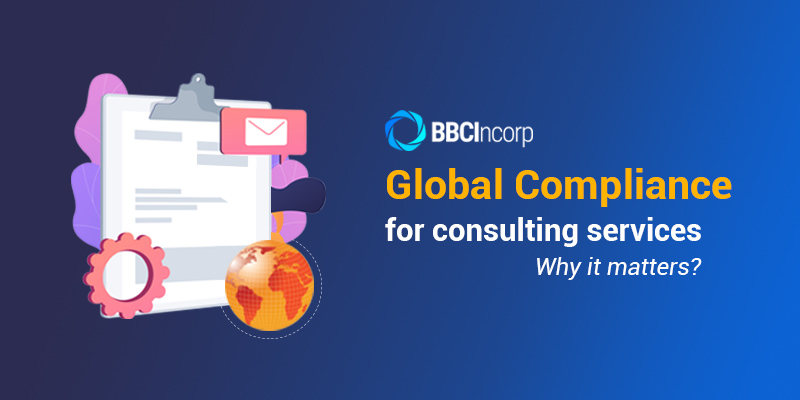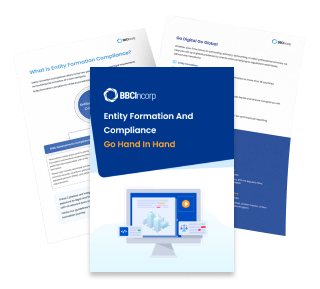
Global compliance is of crucial importance to firms operating across borders. It is essential for a professional service to understand what global compliance is, why it matters, and how they can best manage it when joining the global marketplace.
What is global compliance?
‘Global compliance’ is when an organization abides by all the laws, regulations, rules, and standards that apply to all parts of that organization around the world. There are two distinct elements that fully define global compliance: local compliance in every location of the enterprise, and compliance with international laws, regulations, and standards.
In an increasingly digitized world where it is more common for clients to go global, professional services face new compliance challenges with compliance tasks from all sides.
For companies with branches and operations that span around the world, keeping up with global compliance is equally important as local regulations. Being able to fulfill these legal obligations not only earns goodwill for firms but also attracts more local talents to their branches thanks to their promoted overall images.
Each country has different compliance rules. How do they affect professional services?
While different countries and jurisdictions have hugely different rules, there are also common laws that nations of the world share.
Below are crucial areas in global compliance that are commonly enacted in most countries in the world.
- Tax Compliance
Most jurisdictions require employers to withhold payroll taxes on behalf of their employees and remit them to the tax authorities.
According to the OECD model tax convention, this requirement is applicable to any business that has a ‘permanent establishment’ in any specific jurisdiction. In other words, a permanent establishment is a fixed location where the company ‘carries out’ its business activities wholly or partly.
For professional services, it’s important to stay on top of the changes in tax rules to help their clients keep up with their responsibility and ensure the longevity and profitability of the running businesses.
- Data Privacy
Many countries around the world have standards set by their laws, which determine how companies must protect the data they collect. According to the United Nations Conference on Trade and Development, 137 out of 194 countries around the world have enforced legislation to secure the protection of data and privacy. Particularly, countries in Africa and Asia show different levels of adoption with 61% and 57% of countries having put data protection laws in place, respectively.
Professional service providers often work with sensitive data from client’s business operations and practices in order to advise compliance management. Therefore, data protection is one of the top priorities that firms must stay compliant with. Any breach of data would spell doom to the company’s reputation among potential clients in the future.
- License Compliance
Having a business license means a lot more to professional services than just tax bills.
In most countries, firms must have a license to legally operate. Some common types of global business licenses that professional firms need to take into consideration include enterprise registration certificates, special certifications, or a professional license for specific areas. For example, financial consultants may need certain securities licenses to sell investment products to clients.
Global regulations are constantly changing. According to a report by Wolters Kluwer, 65% of license requirements change each year, and enforcement against business license violations is increasing. Failure to acquire business licenses in a timely manner may result in fines, penalties, and even forced closure. In order to avoid such outcomes, professional services need to fully comply with global license compliance.
The consequences of global compliance failure
Failure to abide by global compliance can greatly and negatively affect an international business. The following list includes some possible consequences.
- Devastating civil fines and penalties
A case in point took place in 2020 when the French data protection authorities penalized Google and Amazon for $120 million and $42 million respectively. These fines were applied due to the fact that each company failed to gain customer consent to drop non-essential cookies.
You can read more about the case here.
- Criminal sanctions
If a company fails to comply with criminal laws (such as anti-bribery, anti-money laundering, and anti-fraud), the consequences may include imprisonment and other criminal penalties for officers working for that company.
- Breach of contract
Many different B2B contracts require global compliance. Failure to follow through with these compliance requirements may be viewed as a breach of material against the contract. As a result, the contract can be terminated and other proceedings may follow such as court injunctions and damage compensation obligations.
- Loss of licenses or approvals
In many industries, businesses must have regulators approve certain licenses or approvals/authorities (for example, financial services licenses). Failure to fulfill this compliance can result in a revocation of such licenses and approvals.
- Reputational damage
A company failing to be globally compliant can quickly become an ‘outlaw’ in its industry, effectively losing its business reputation in the long term. It is crucial that businesses avoid non-compliance at all costs by outsourcing professional services that know about the local laws.
How to best manage global compliance
Knowing how damaging the failure to abide by global compliance requirements can be, companies must take steps to establish and manage comprehensive compliance programs.
Let’s take a look at a few important aspects to consider below.
- Enforce transparent communication for compliance procedures
Most firms have various internal structures, with different roles, offices, and departments. This may cause communication breakdown and make it difficult to ensure compliance across the organization.
Professional services must do what it takes to make sure that compliance practices and messages are communicated effectively. For instance, holding compliance training to gain insight into an employee’s knowledge and help them navigate through any issues encountered.
- Integrate compliance into business processes
Compliance should never be an afterthought for your business. Netenrich made a security survey in 2021, and 67% of IT and security professionals asked about improving their company’s compliance gave the answer ‘upgrading compliance tools and software.
It is actually backward and inefficient by starting out by developing and optimizing a business process before checking compliance requirements. Instead, it is recommended that business process development and compliance tasks go hand-in-hand from the ground up.
- Outsource compliance process
A 2020 Report by Deloitte stated that stagnant budgets and a shifting workforce are the two main reasons much in-house compliance staff struggle. In fact, 87% of organizations reported that they have no additional capacity due to being understaffed or only barely staffed. A solution to this issue is to outsource the compliance process.
Outsourcing compliance process is arguably one of the best ways to keep up with the ever-changing requirements for this aspect. According to a Thomson Reuter report in 2021, 34% of organizations outsource some or all of their compliance functionality.
The outsourcing partner supervises the functioning of the board procedures in compliance with the law and makes sure that everything goes smoothly. Their job is to act as chief administrators of the firm. With a dedicated position overseeing the compliance process, firms will be relieved of the burden of compliance management.
Quick guide
Entity Formation Compliance
Understand global compliance issues to ensure risk-free entity formation journey for clients.


Conclusion
As each country has its own rules and culture for enforcing those rules, global compliance for a company can feel overwhelming. As a result, this specific aspect of the compliance task is often overlooked.
Key takeaways
- A business’s global compliance is following the rules and regulations of each country it has branches.
- The most common global compliance rules include tax compliance, data privacy, and license compliance.
- Failure to abide by global compliance requirements can lead to penalties or reputation loss.
- To become globally compliant, a company must integrate compliance into its business process, enforce transparent communication for compliance procedures, and outsource compliance processes.
We hope our article has shed some light on the matter and helped you gain a better understanding of global compliance’s importance. In case you help with compliance procedures and management, feel free to drop us an email via service@bbcincorp.com.
Disclaimer: While BBCIncorp strives to make the information on this website as timely and accurate as possible, the information itself is for reference purposes only. You should not substitute the information provided in this article for competent legal advice. Feel free to contact BBCIncorp’s customer services for advice on your specific cases.
Get helpful tips and info from our newsletter!
Stay in the know and be empowered with our strategic how-tos, resources, and guidelines.


